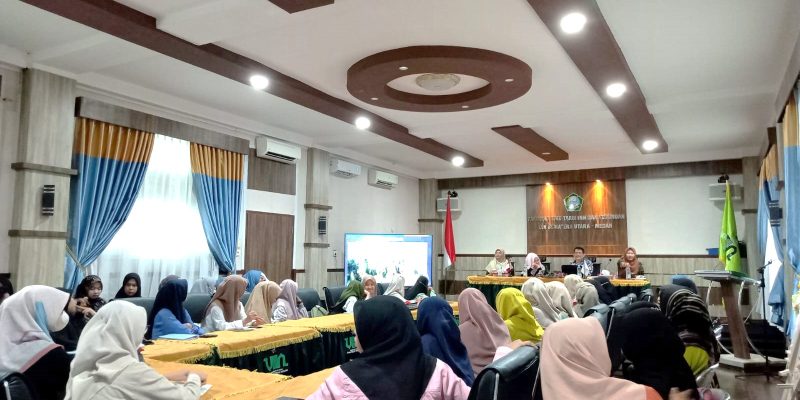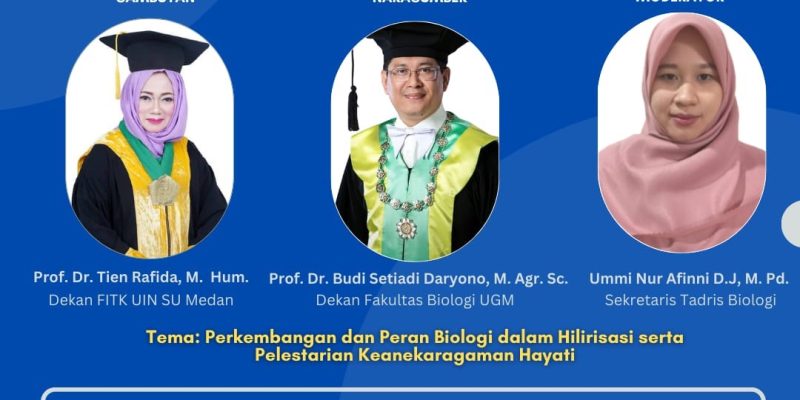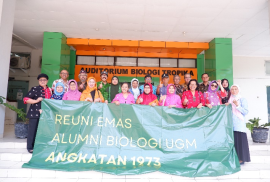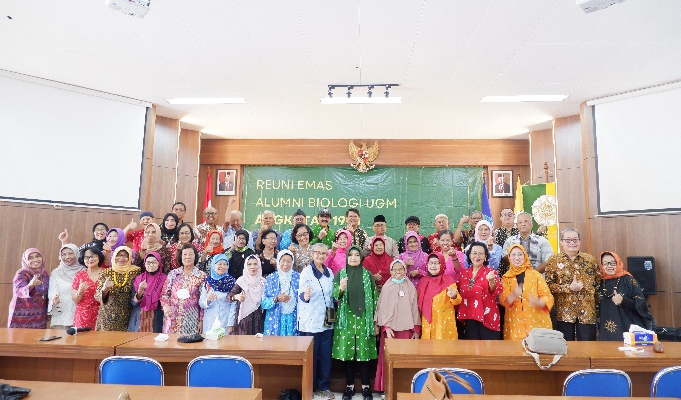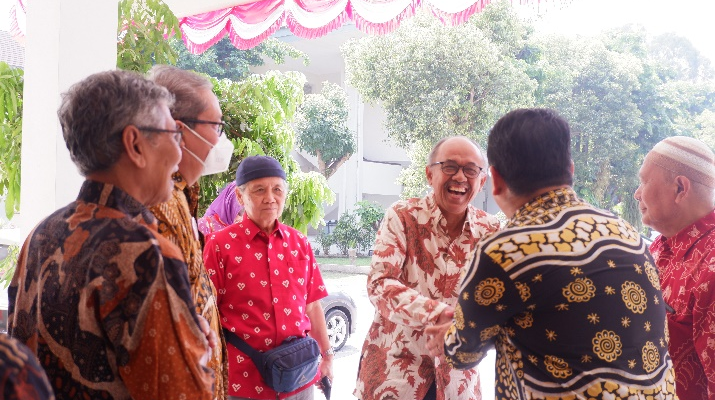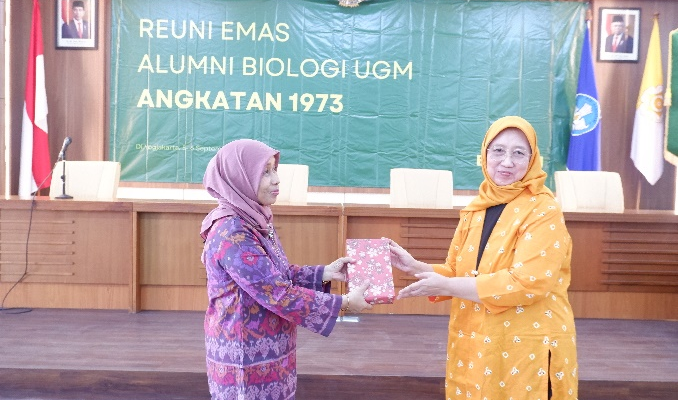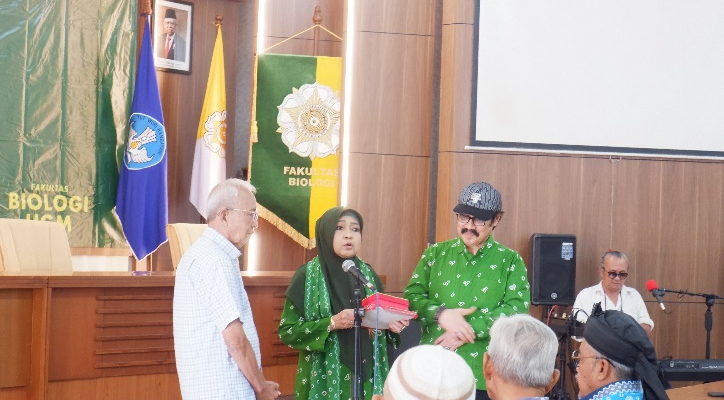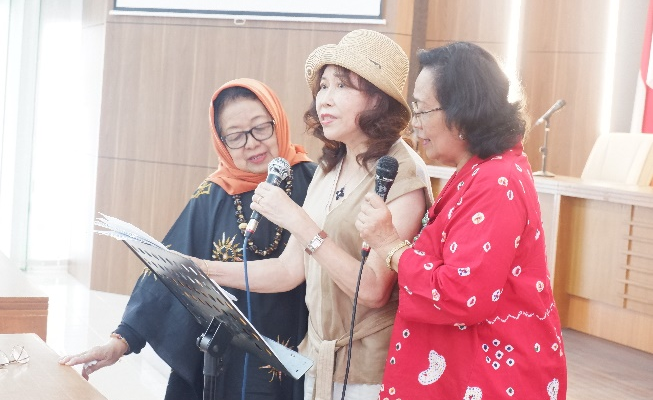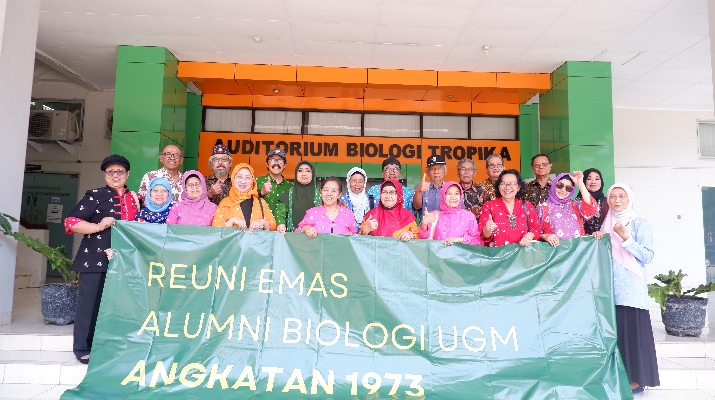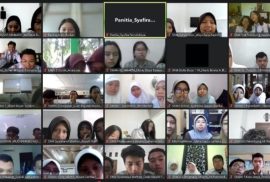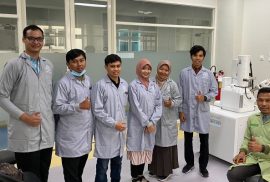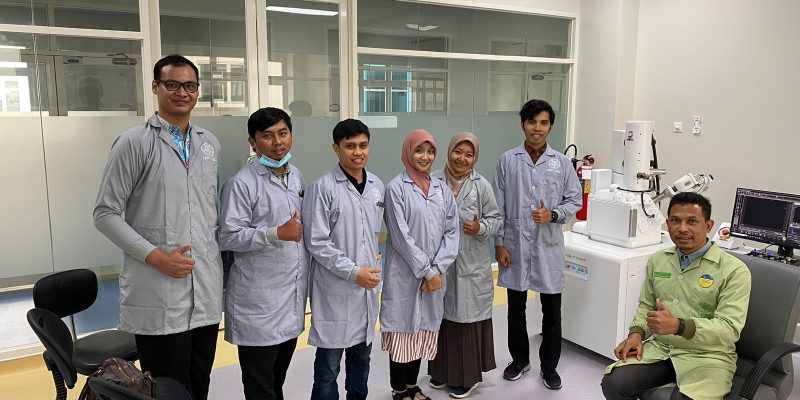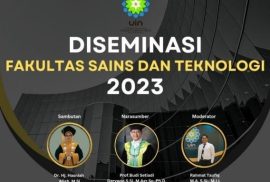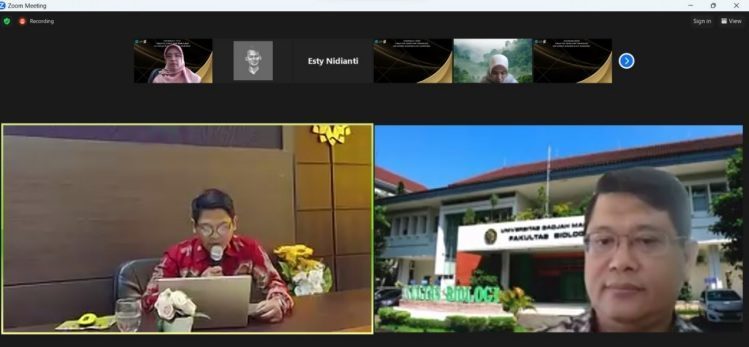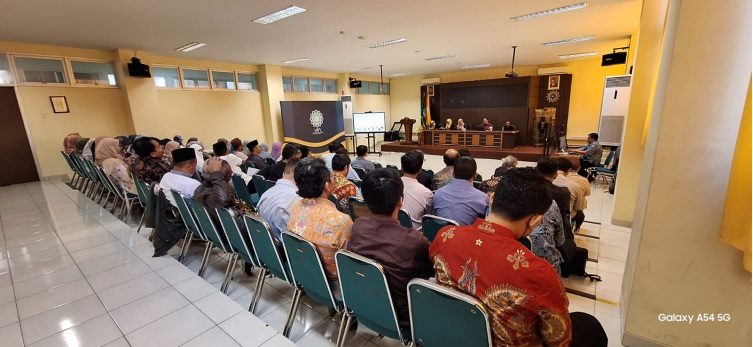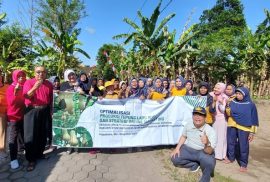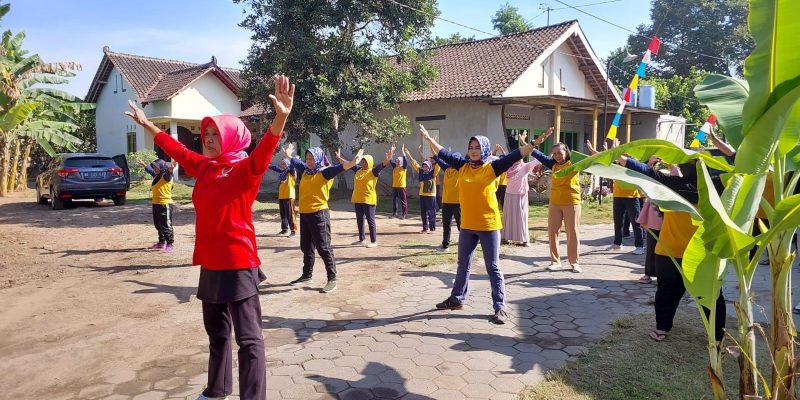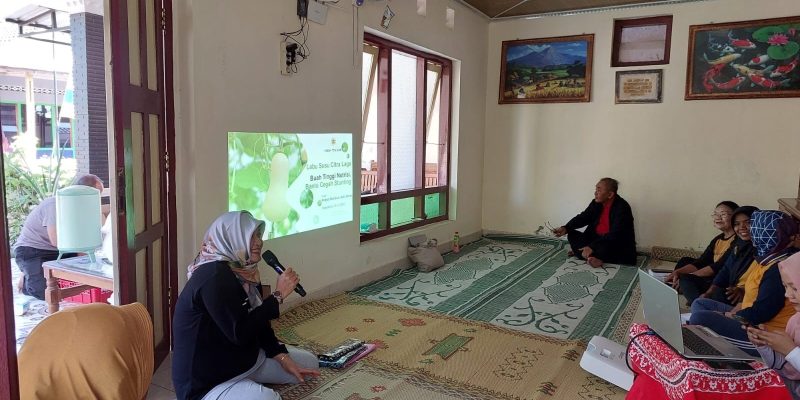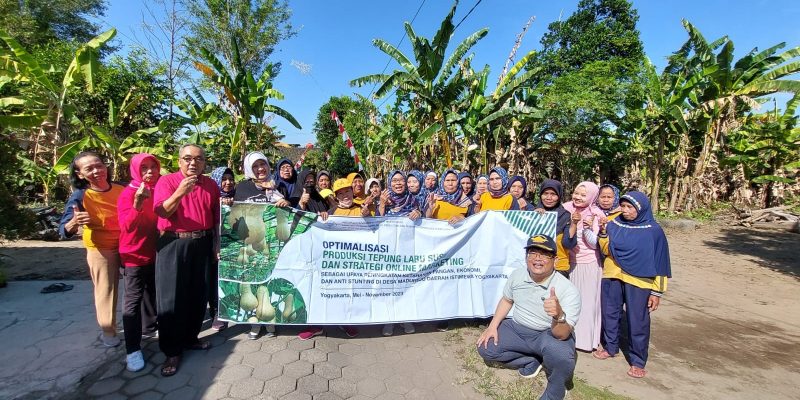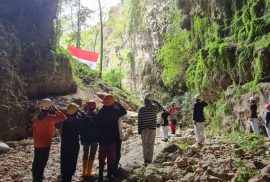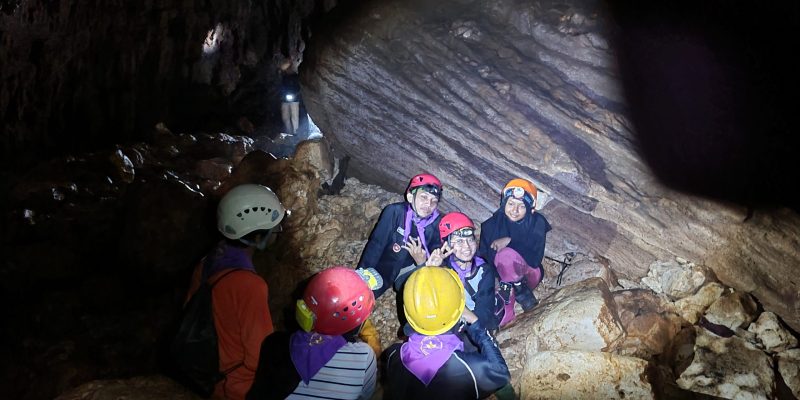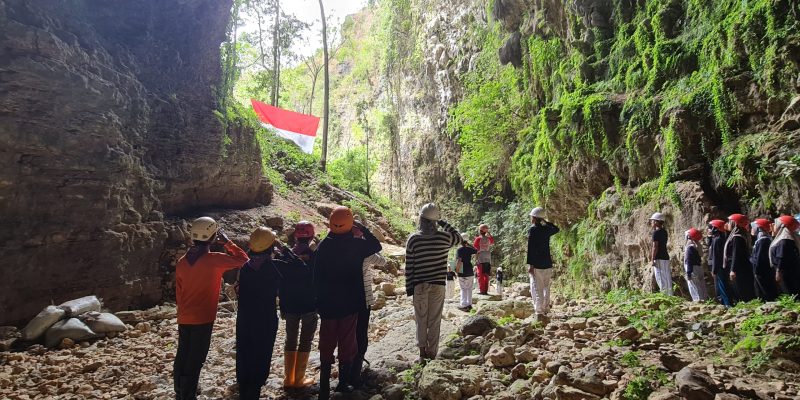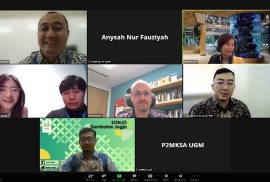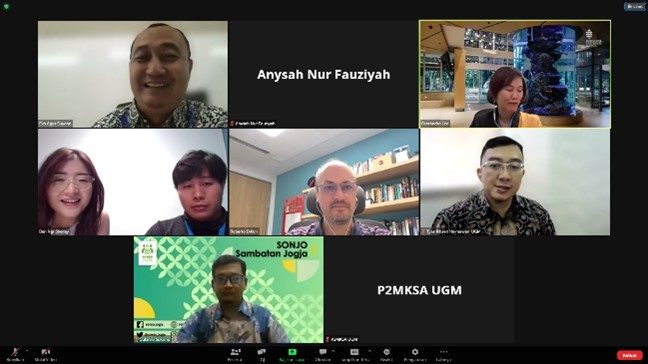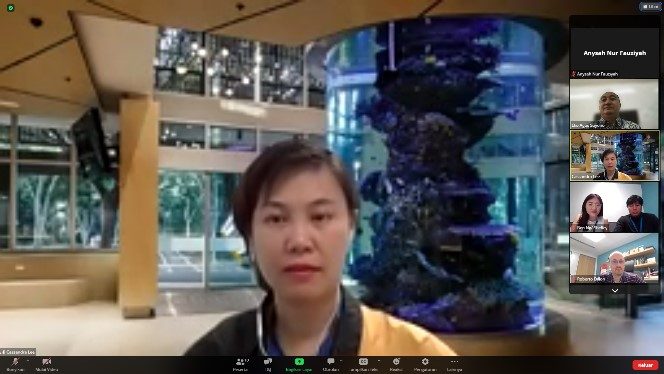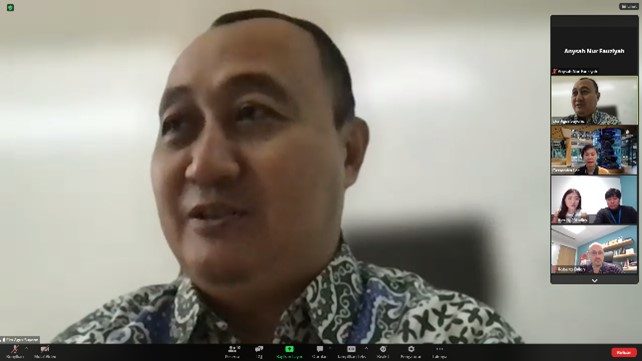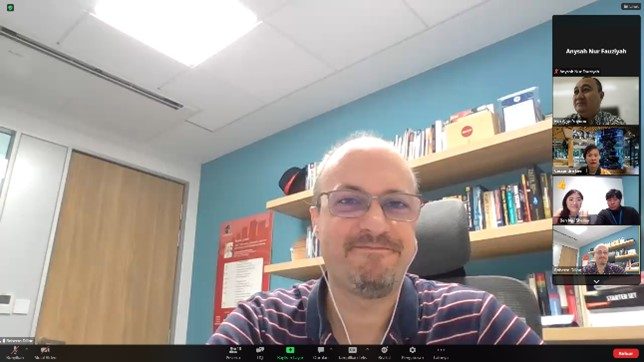Headline
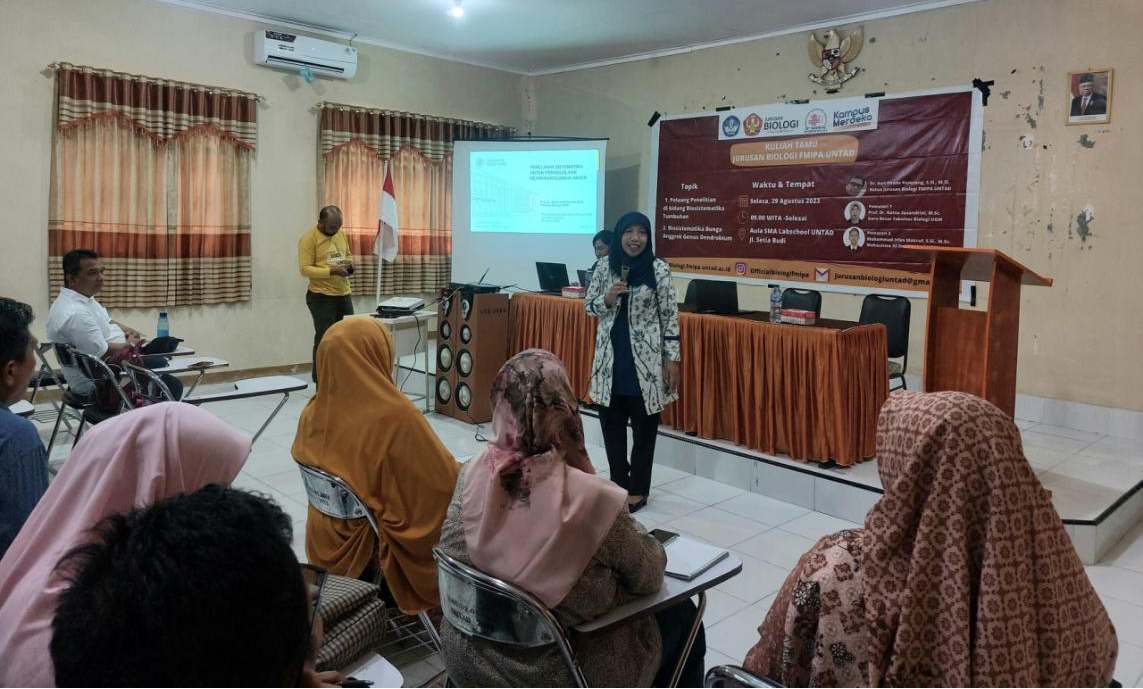
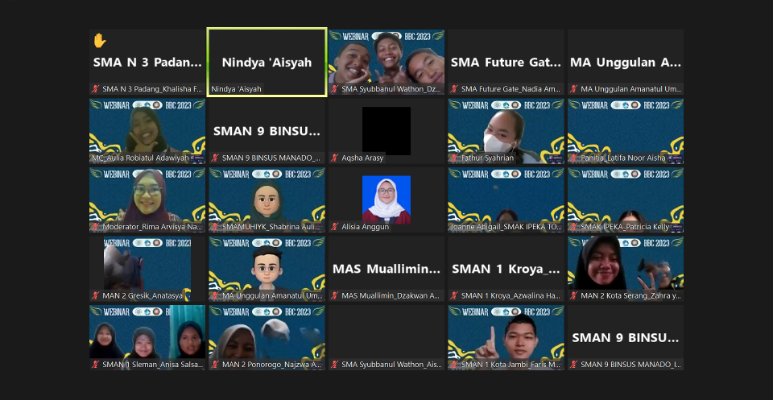
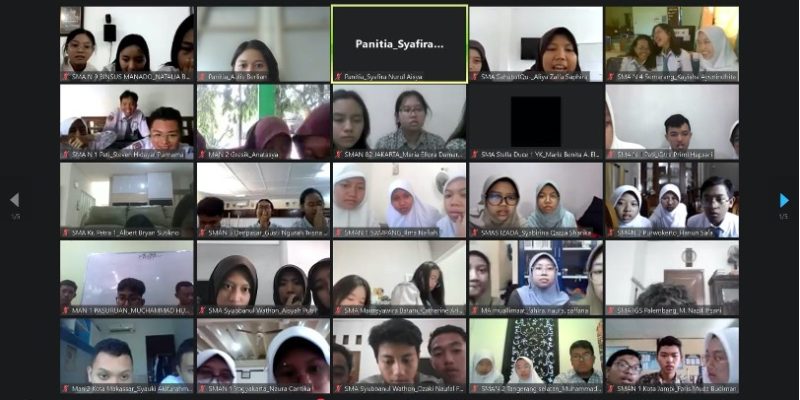
Yogyakarta – 31 August 2023 The Faculty of Biology held an online discussion with James Cook University. The discussion was attended by colleagues from James Cook University, Campus Singapore. There are Cassandra Lee as Director, Recruitment and Partnerships, Ben Ng as Assistant Manager in International Management, Shelly Wang as Senior Regional Manager (Europe, Central Asia and Others), and Assoc. Prof. Roberto Dillon as Academic Head for the School of Science and Technology James Cook University Singapore. From the Faculty of Biology attended by Dr. Eko Agus Suyono, M.App.Sc. as Vice Dean for Research, Community Service, Collaboration and Alumni Affairs, Dr. Bambang Retnoaji, M.Sc. as Vice Dean for Academic and Student Affairs, Sukirno, S.Si., M.Sc., Ph.D. as Head of the Undergraduate Study Program, and Tyas Iksan Hikmawan, M.Sc., Ph.D. as Head of the International Affairs Office, Faculty of Biology, UGM.
Dr. Eko as Vice Dean for Research, Community Service, Collaboration and Alumni Affairs of the Faculty of Biology, said that the discussion was a follow-up step from the previous discussion, which discussed the initiation of research collaboration and student exchange. Dr. Eko explained further about the International Undergraduate (IUP) program at the Faculty of Biology and the enthusiasm of students to be able to collaborate with James Cook University, especially their interest in marine biology. He also conveyed the initiation of double degree and joint supervision collaboration. Faculty of Biology itself has collaborated on a double degree with Australia National University and the University of Leeds and has collaborated on joint supervision with Boku University, Greifswald University, and L’Institut Agro Montpellier.
Assoc. Prof. Roberto Dillon expressed his appreciation for the collaboration initiative and explained the study programs at the James Cook University School of Science and Technology on the Singapore Campus that can be collaborated on. There are Bachelor of Business and Environmental Science and Bachelor of Science programs. He added the suitability of the program, especially the Bachelor of Science program with a background in the Faculty of Biology UGM and students’s study interests in marine biology.
Cassandra Lee then conveyed the need for curriculum mapping and further discussions, especially for collaborative student exchange, double degree and joint supervision supported by potential Indonesian government scholarships (LPDP) for master’s and doctoral programs. Cassandra hopes for flexible collaboration so that students can take collaborative work programs with James Cook University on the Australian Campus and the Singapore Campus as well. Shelly Wang and Ben Ng also added follow-up on curriculum matching together with Sukirno, S.Si., M.Sc., Ph.D. as Head of the UGM Faculty of Biology Undergraduate Study Program for the overall collaboration plan.
This discussion is a great bridge to increase the collaboration network between Universitas Gadjah Mada, especially the Faculty of Biology and James Cook University. In addition, this collaboration is a commitment from the Faculty of Biology UGM to support sustainable development and is in accordance with Sustainable Development Goals (SDGs), namely good quality education (SDGs 4) and revitalization of global partnerships (SDGs 17).



